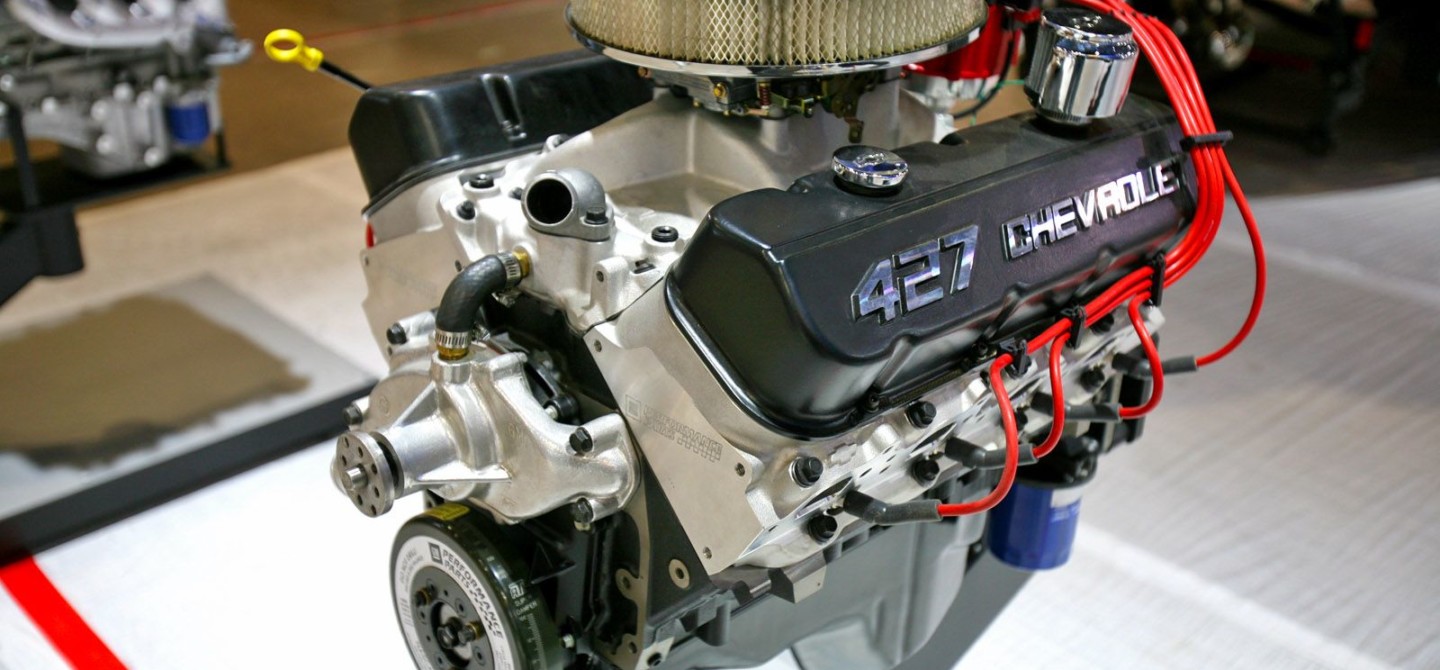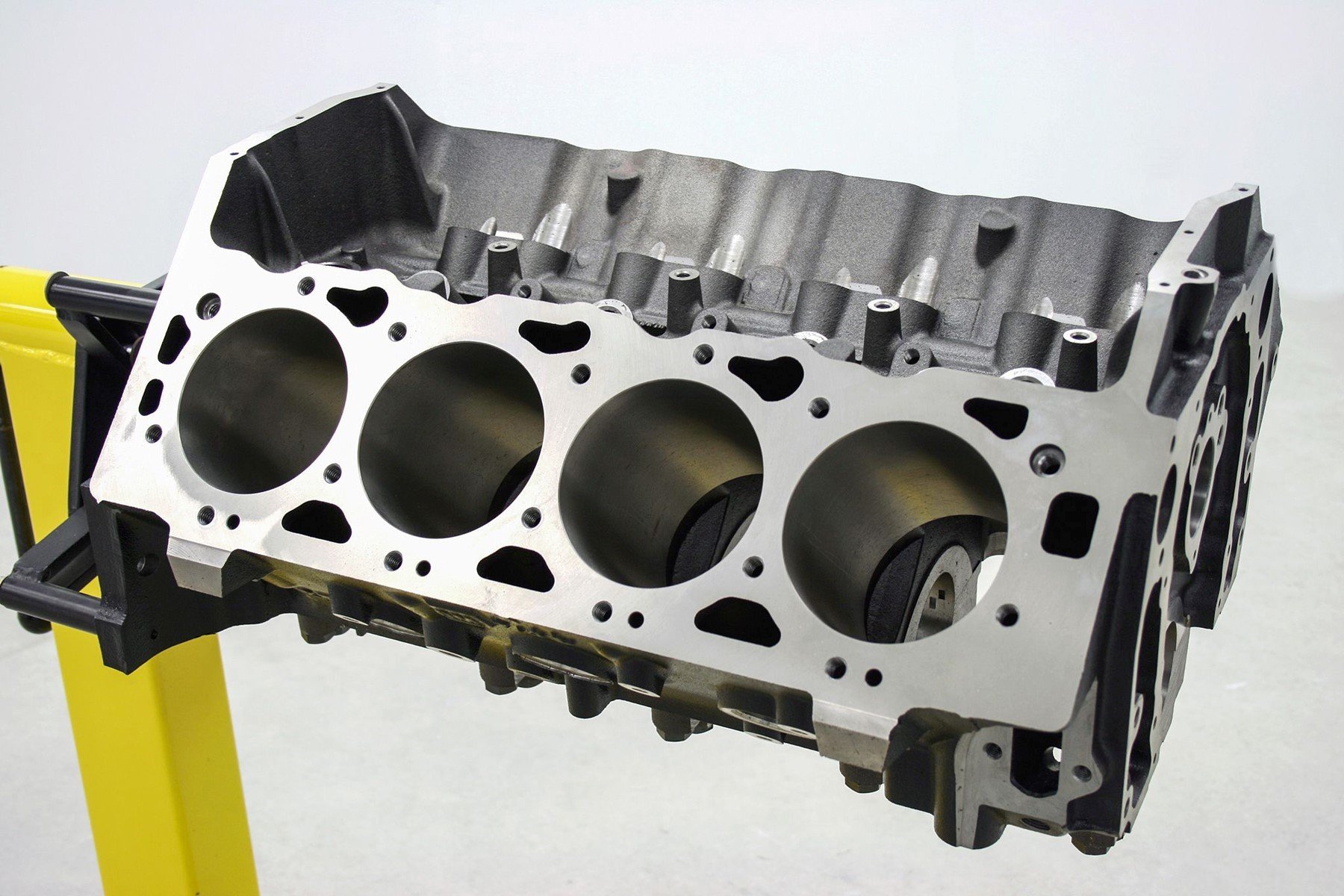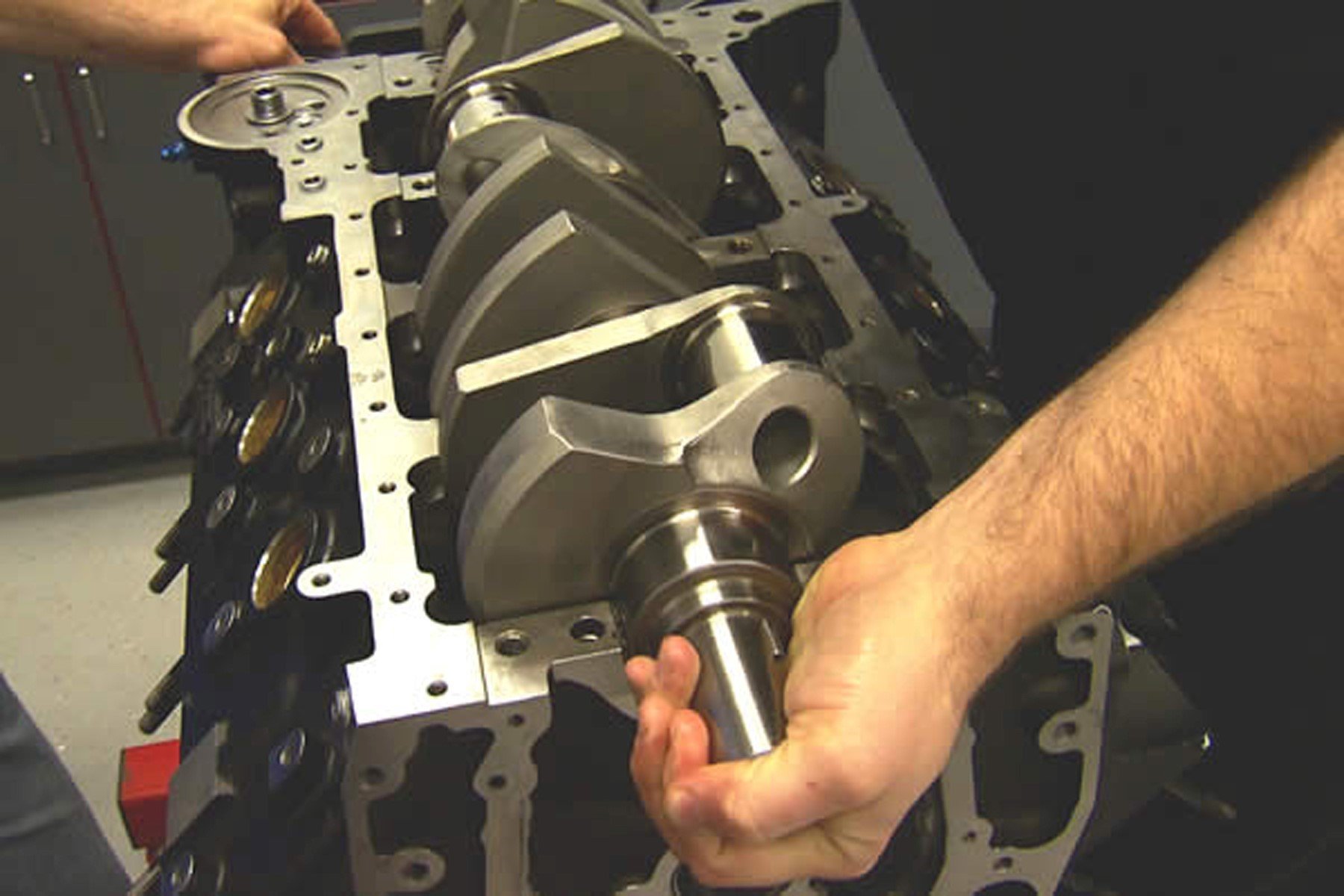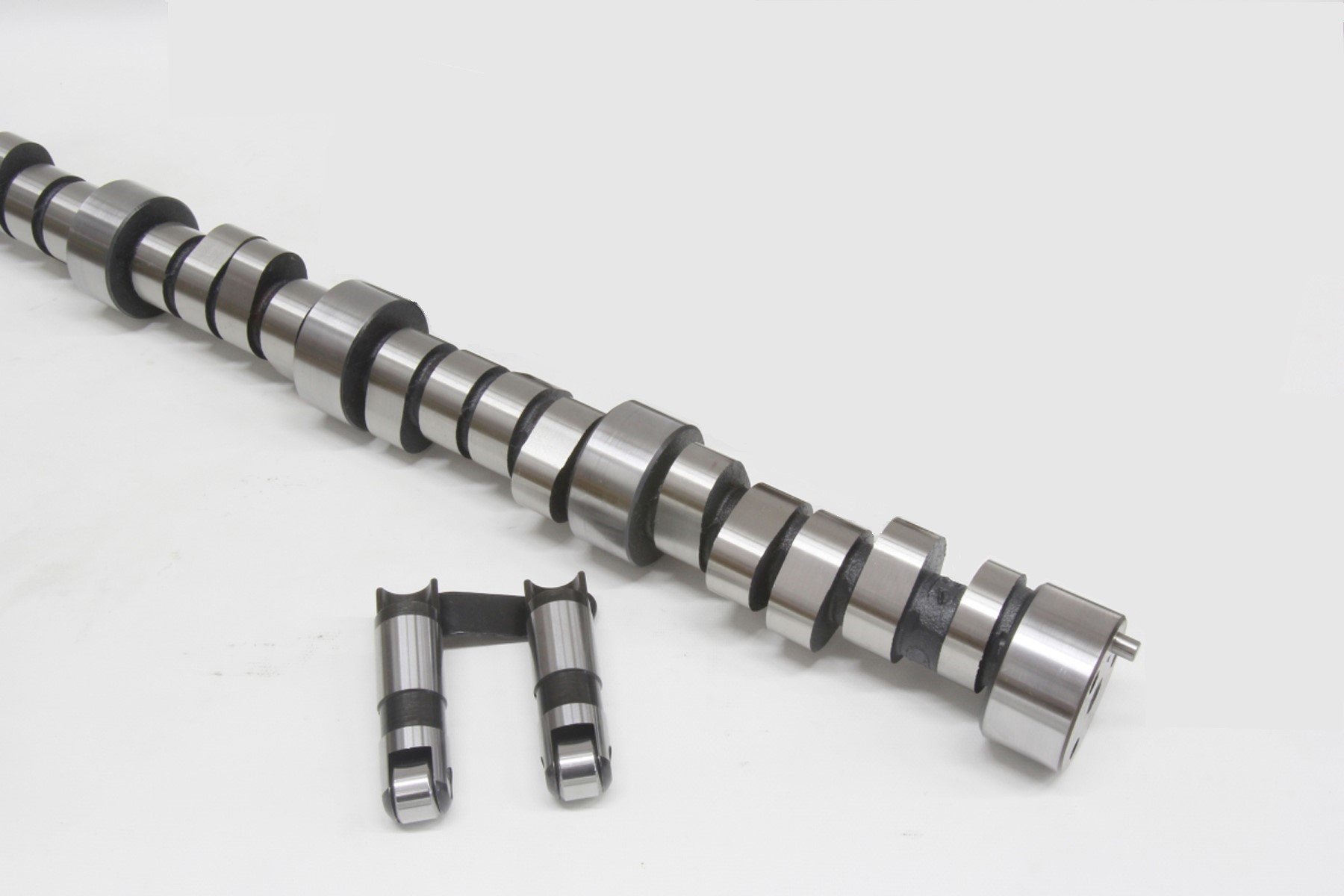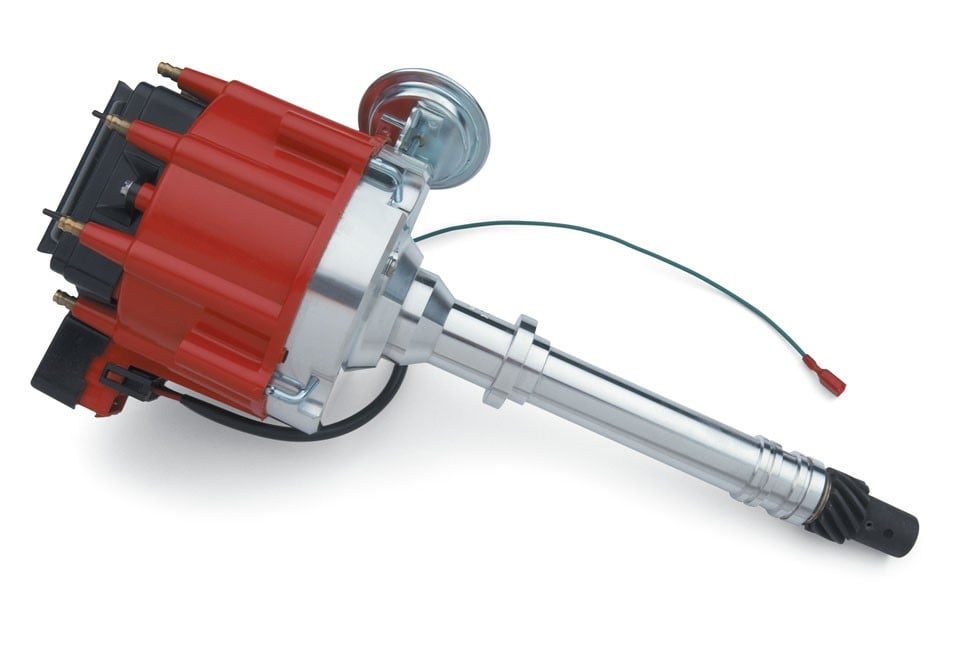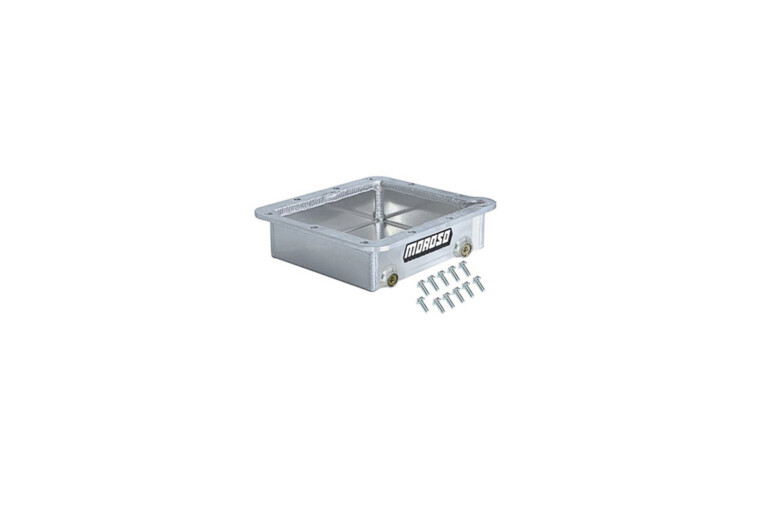Despite recent rumors that Chevrolet was toying with the idea of leaving the crate engine market, it’s obvious that Chevrolet Performance is committed to providing engines to supply both the vintage and late-model guys. We recently had an opportunity to sit down with Chevrolet Performance Special Projects Manager, Bill Martens, and Chevrolet Performance engineer, Will Philippin, to ask them about a particular big-block, the ZZ427/480.
As far as we are concerned, big-blocks are far from dead in our camp – Bill Martens, Chevrolet Performance
Available through Chevrolet dealerships under part number 19331572, the ZZ427/480 is the closest thing you can purchase that will put today’s equivalent of the legendary L88 under the hood of your ride. Sure, today’s engine isn’t an exact clone of the legendary powerhouse and you won’t be able to order it in your new Corvette or Camaro (COPO or not), but some would say that it’s better. Better in the fact that the folks at GM have learned a lot about how to make reliable power, and the ZZ427/480 uses all the technology available to create a long-lasting, driveable engine. The only downside, is that while you’ll still be the envy of many cruise-in attendees, it won’t be due to the engine’s exclusivity.

The L88 engine is a legend, and was installed in Corvettes from the factory and some Camaros at the dealership. Underrated at 430 horsepower, it was common knowledge that upwards of 500 ponies could be conjured out of the engine with the right components.
From the top down, “today’s L88” has features that make it a much-better-suited engine for those seeking driveability to go with performance. Unlike the vintage L88s, this engine’s carburetor has a choke. While not a huge issue, it’s just the tip of the iceberg, figuratively and literally. Beyond that, modern castings come together with proven components that help keep horsepower ratings high and maintenance low. While many components may not wear those most-revered part numbers of yesteryear, you can rest assured that the vintage, performance sound is still present.
Built To Perform
We asked Will Philippin about the actual construction of the ZZ427/480 engine and how it differs from your typical Chevrolet crate engine. “These engines are built on a low-volume production line, about 35 engines a day, right here in Detroit,” he said. “The difference is, we’re doing more quality checks than production would allow. Every part is measured and inspected before assembly. While not complete, it’s as close to being blueprinted as you can reasonably get, with each component being size-matched during assembly. It’s the same process for our ZZ572 as well as the other ZZ engines.”
The block features four-bolt mains, and thanks to a recent revision, also includes a fuel pump provision. The crankshaft is a forged-steel version, designed for the block’s one-piece rear-main seal, and comes with an internally balanced 14-inch automatic transmission flex-plate. Standard-equipped cars will require a flywheel designed for an internally balanced engine.
Bill Martens goes on to explain the low-volume production used by the ZZ line of crate engines. “All engines are batch-built, according to demand. We want to make sure the customer gets a fresh engine with typically, a four-month cycle from assembly to retail sale, with a few variables due to dealer inventory and volume. The engines can be purchased through any Chevrolet dealer, but there are specialists within the system that are especially focused on performance and the engines are also available through various re-sellers.”
Upgrades over the original engines are the use of roller components in the valvetrain. A roller camshaft is designed for a broader performance envelope and the 1.7-ratio roller rockers reduce friction while providing improved stability.
Building this powerhouse starts with a newly designed cast-iron block with four-bolt main caps. Philippin explains the block’s new design, “The 427 as it is today, is a result of the all-aluminum 427 (ZL1). It was a unique project using the original tooling of the original 427, but incorporating modern upgrades such as the one-piece rear-main seal. The aluminum block was costly, two-to-three times more, and the iron block is much more popular. The horsepower is the same.” He goes on to explain the recent revision in block design to better suit the enthusiast, “For a while, the Bow Tie big-block had no fuel pump provision until we completely re-tooled 10 years ago. Now, all of our big blocks have provisions for mechanical fuel pumps.”
The castings for both blocks and heads are manufactured in different facilities to accommodate the cast-iron blocks and aluminum heads, but both are from American suppliers. From their respective foundries, they are sent to another facility for machining, and then to the assembly location where they will meet for the first time. Components inside the block have likewise, been upgraded to better suit the needs of enthusiasts.
While the original L88 could be an ornery beast that thirsted for high-octane fuel, today’s version uses a much more pump-friendly 10:1 compression ratio. Another benefit is while the camshaft still has that performance sound that we all enjoy, it has been tailored to provide a much broader power range and is an upgrade to an ultra-reliable hydraulic roller from the original’s mechanical flat-tappet design.

The “beehive” valve springs help stability by decreasing mass and inertia, and require less seat pressure than the vintage dual-spring assemblies. They also do not require an inner damper spring.
While all components need to blend together for optimum performance, the heads have a lot to say about the engine’s final output and reliability. The ZZ427/480 engine uses aluminum heads filled with 2.190-inch intake and 1.880-inch exhaust valves. Wrapped around them are ovate-wire, beehive-style springs that play a major role in valvetrain stability. Whereas the original L88s used a dual-spring with a third, inner damper spring, the ZZ427/480’s beehives provide adequate control, even with the faster ramp speeds of the roller camshaft. Even so, their lighter mass allows for less pressure, heat, and wear on the springs.
Working each of those springs is a 1.7-ratio aluminum rocker arm, providing much better control and reliability than the slotted, stamped-steel versions of yesteryear. The roller rockers make for a taller and more robust valvetrain. To accommodate this, the valve cover is higher, so you need to ensure there is no interference with a nearby A/C housing or power brake booster.
Better Than Before
There are many improvements to the ZZ427/480 that make it favorable for a daily-driver as compared to the legendary L88. As mentioned, the one-piece rear-main seal helps keep oil at bay, as does the use of other, late-model-style gaskets, such as the shimmed-insert rubber gasket for valve covers. Both Bill and Will report that the use of synthetic oil is not a concern and mentioned the engine has been tested using 5w30 without issue.
Another benefit is the 770cfm Holley carburetor that utilizes vacuum secondaries and center-hung floats. An electric choke provides better low-temp operation and makes itself scarce when not needed. The intake is still a dual-plane but is taller than the factory Corvette style. There may be some clearance issues in some cars with a factory hood.
While vintage, Transistorized Ignitions were a nice, value-adding option for factory-performance GM cars, today’s performance engines gain much more reliability and capability through GM’s HEI version of spark distribution. The ZZ427/480 uses a billet HEI-style distributor, which has been the standard for ignition on GM vehicles since it was introduced in the mid-70s.
Better fuel and spark is thanks to the Holley 770cfm carburetor that utilizes an electric choke and the HEI distributor.
A Continuing Commitment
There are many reasons that someone might want to move forward to a late-model-style of powertrain. For those who seek a more vintage mode of motivation, albeit in an updated form, Chevrolet Performance has a vast offering of both big- and small-block engines, with one that surely fits the customer’s power needs and budget. We asked Bill about the popularity of their current offerings and what part they play in the future. He was quick to reply, “To my knowledge, Chevrolet Performance is hands down, the biggest in big-block coverage, especially in the street package. As far as we are concerned, big-blocks are far from dead in our camp and have enjoyed very robust sales. We’re far from getting out of big-blocks!”
It’s as close to being blueprinted as you can reasonably get – Will Philippin, Chevrolet Performance
For those who can make use of today’s newest version of the legendary L88, the engine brings with it all the power and performance of a bygone era, with the added benefit of a 2-year/50,000-mile warranty. The warranty begins from the date of purchase, which makes all the more reason to get it under the hood of your car and on the road as soon as possible since you’ll likely make two circuits of the sun well before you’ll come close to the max mile marker on the warranty. But oh, the fun in trying!
ZZ427/480 TECH SPECS
- Part Number: 19166393
- Displacement (cubic-inch):427
- Bore x Stroke (in.): 4.250 x 3.750
- Block (P/N 19170538): Cast-iron with four-bolt main caps
- Crankshaft (P/N 19171620): Forged steel
- Connecting Rods (P/N 19211226): Forged steel
- Pistons (P/N 19171618): Forged aluminum
- Camshaft Type (P/N 12366543): Hydraulic roller
- Camshaft Lift (in.): .527-inch intake/.544-inch exhaust
- Camshaft Duration (@.050 in.): 224 degrees intake / 234 degrees exhaust
- Cylinder Heads (P/N 19211799): Aluminum oval port, 110cc chambers
- Balanced: Internal
- Valve Size (in.): 2.190-inch intake/1.880-inch exhaust
- Compression Ratio: 10.1:1
- Rocker Arms (P/N 19210726): Aluminum roller style
- Rocker Arm Ratio: 1.7:1
- Distributor (P/N 19212081): HEI type
- Carburetor (P/N 19170093): 770cfm
- Water Pump (P/N 19168602): Aluminum short-style
- Spark Plugs and Wires: Included
- Flexplate (P/N 12561217): 14 inches
- Recommended Fuel: Premium
- Ignition Timing:36 degrees at 4,000 rpm
- Maximum Recommended rpm: 6,400


